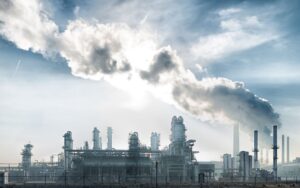
Warmtebedrijf Rotterdam and Nuon have signed a new agreement regarding the supply of residual heat from the port of Rotterdam to the greater Leiden area – a project also known by the name Warmtelevering Leidse Regio (WLR). This agreement is a major step forward in the realisation of a sustainable and future-proof heat supply in Leiden as well as of a main infrastructure for heat transport in the province of South Holland, as conceived by the South Holland Heat Alliance.
The realisation of the WLR project ties in with the objectives set out in the policy outlook Leidse Warmtevisie and the Holland Rijnland regional energy covenant. The latter agreement has resulted in considerable headway in the transition towards a Leiden that is no longer dependent on natural gas, with a reliable and sustainable heat supply for some 13,000 households and 200 companies. Parties are presently examining which options there are to expand the programme into Southwest Leiden and the Station District.
Heat networks play a major role in the energy transition outlined in the government’s new coalition agreement. At present, around half the total power consumption of the Netherlands is used for heating buildings and greenhouses and for manufacturing processes. At the same time, Rotterdam’s port area generates a large volume of residual heat that could be tapped into for these purposes. A lot of this heat is currently ‘thrown away’. The present district heating project uses this residual heat as a replacement for natural gas – resulting in a substantial reduction of greenhouse gas emissions.
A new heat pipeline will be constructed to supply residual heat to the Leiden region. In the further elaboration of the plans for this heat pipeline, Warmtebedrijf Rotterdam will be working together with the South Holland Heat Alliance to determine possible opportunities to hook up projects or companies along the connection between Rotterdam and Leiden.
South Holland Heat Alliance
In early 2017, the Province of South Holland, the Port of Rotterdam Authority, Gasunie, Eneco and Warmtebedrijf Rotterdam joined strengths in the South Holland Heat Alliance (Warmtealliantie Zuid-Holland). This spring the alliance partners launched their plan for a regional heat distribution system: a main infrastructure that all parties are free to supply heat to or source heat from, supervised by an independent network manager. The heat is subsequently transported to households, horticulture and businesses by various distribution companies. The Heat Alliance has identified various options to connect some 500,000 households and a share of the local greenhouses to a regional heat distribution system. This would yield an annual reduction in CO2 emissions of over 1 million tonne. The partners aim to bundle existing pipelines into a large-scale open network in the province of South Holland – an approach that is currently still in the development stage. The South Holland Heat Alliance plans to utilise a wide array of different sources, including heat generated by industrial activity in Rotterdam’s port area as well as geothermal sources and biogas.
About Nuon
A new heat pipeline will be constructed to supply residual heat to the Leiden area. In the further elaboration of the plans for this heat pipeline, Warmtebedrijf Rotterdam will be working together with the South Holland Heat Alliance to determine possible opportunities to hook up projects or companies along the connection between Rotterdam and Leiden.
Warmtebedrijf Rotterdam
Warmtebedrijf Rotterdam transports heat from the port of Rotterdam to other areas that require heat. The heat in question is residual heat from industrial sources that would otherwise go to waste. It is put to good use in industrial processes or district heating. This reduces the volume of fossil fuel used for these purposes, which in turn cuts back CO2 emissions and improves local air quality.
Source: Port of Rotterdam